You feel like your heart might stop the moment the cold water hits your skin. Your breath catches. Time slows. “This has to be what death feels like,” you think.
But here’s the twist: this practice of cold plunging isn’t going to kill you. In fact, research suggests it might help you live longer — and stronger.
More and more evidence points to cold water immersion as a tool for longevity. Not just in terms of adding years to your life, but in improving the quality of the years you already have. With consistent practice, people report more energy, sharper clarity, and greater resilience — the very traits that make life feel rich and full.
Why longevity is on everyone’s mind
Biohacking is no longer a niche hobby. It’s mainstream. You see it in the rise of podcasts, books, and even shows like Chris Hemsworth’s “Limitless” on Disney+, which dive into the science of extending health and vitality.
At the same time, surveys show that people are deeply interested in longevity — not necessarily living longer. A 2024 study by Medtronic and Morning Consult found that while most Americans want to live to 90, nearly two-thirds (66%) would actually choose a shorter, healthier life over a longer one with serious health issues. In other words, people don’t just want more years. They want better years.
This new way of thinking is driving the conversation about longevity. Advances in medicine have extended life expectancy, but many people still spend their later years managing chronic disease, reduced mobility, or cognitive decline. That gap between lifespan (how long you live) and health span (how long you live well) is what so many are trying to close.

Cold water immersion: from recovery to resilience
You might think cold plunging is only for athletes or the young. And yes, it’s popular on TikTok and among people chasing faster recovery after tough workouts.
But the science tells a bigger story. Cold plunging offers benefits that extend far beyond sports performance.
A 2024 review of clinical and observational studies found that deliberate cold exposure can support cardiovascular health, boost metabolism, reduce inflammation, and improve brain function. These are the very systems that tend to decline with age — and that ultimately determine not just how long we live, but how well.
As the authors concluded, cold water therapy has the potential to “enhance physical and mental well-being, promote healthy aging, and extend the healthspan.”
The science of stress and adaptation
So why does something as uncomfortable as cold water immersion deliver such wide-ranging benefits? The answer lies in hormesis, which is the body’s ability to adapt and grow stronger from short-term stress.
Step into a cold tub and your nervous system immediately goes into survival mode. Blood vessels constrict. Your heart rate climbs. Adrenaline spikes. It’s not pleasant. But once you get out, your body shifts into recovery mode. Hormones and neurotransmitters rebalance. Circulation improves. Inflammation drops.
Dr. Jaime Seeman, a board-certified OB-GYN, describes this as a training effect: “We place the body under a bit of stress so that the stress responses are better and more robust and recovery is better.” In other words, each plunge strengthens your resilience — a trait directly linked to longevity.
Longevity benefits of cold water immersion
Resilience isn’t just about mental grit. The stress of cold water immersion also triggers physical changes that affect nearly every system in the body. And these changes don’t just make you feel better in the moment; they shape the processes that influence how long, and how well, you live.
Take your heart, for example. Regular cold exposure supports healthier cholesterol levels, improves insulin sensitivity, and strengthens circulation. These shifts add up to a lower risk of cardiovascular disease, one of the biggest threats to longevity.
Metabolism also gets a boost. Cold plunging activates brown adipose tissue — a special type of fat that burns energy to keep you warm. This process not only helps regulate glucose but also improves overall energy expenditure, making it easier to maintain a healthy weight as you age.
Then there’s inflammation, a silent driver of chronic conditions from arthritis to diabetes. Cold water helps reduce systemic inflammation, protecting joints and preserving mobility. At the same time, plunges trigger a surge of neurotransmitters like dopamine and norepinephrine. The result? Sharper focus, better mood, and stronger mental resilience.
Finally, sleep. After the initial “shock” of cold exposure, your parasympathetic nervous system takes over, helping the body recover. Many people report deeper, more restorative rest — a cornerstone of long-term health and vitality.

Cold therapy and women’s health
For women, cold water immersion may play a particularly important role in the pursuit of longevity. Menopause accelerates many hallmarks of aging, Dr. Seeman says, from increased cardiovascular risk to changes in metabolism and sleep quality.
Cold immersion, she says, offers a way to push back. By improving insulin sensitivity, lowering inflammation, and helping balance the nervous system, it gives women a tool to feel stronger and more capable during midlife and beyond.
But perhaps just as importantly, it builds grit. Doing something uncomfortable, day after day, strengthens the brain’s stress pathways. That sense of resilience — the reminder that you can adapt and endure — may be just as valuable to longevity as any lab marker.
Does cold water make you look younger?
It’s one of the most common questions typed into Google: Does cold water age you, or does it help you look younger?
The truth: Cold plunges won’t erase wrinkles or stop time. But by improving circulation, lowering inflammation, and promoting better sleep, they can help you feel more youthful and vibrant. And when you feel better, you carry yourself differently — which is often what really makes you look younger.

Are cold plunges safe for longevity at any age?
One of the most common questions people have is whether cold plunges are safe, especially if you’re not an athlete or if you’re older. The good news is that cold water immersion can be beneficial at nearly any stage of life, but it’s important to start thoughtfully.
Most of the research, including the 2024 review, suggests that short exposures at moderately cold temperatures are enough to see benefits. You don’t need to plunge into freezing water for 10 minutes. Just a couple of minutes in water below 59 degrees, done consistently, can make a difference.
That said, anyone with cardiovascular concerns or chronic conditions should talk to a healthcare provider before starting. Cold exposure is a stressor — and while that’s what makes it powerful, it also means it should be approached with care.
How to start using cold therapy for longevity
If the idea of plunging into ice water feels extreme, remember this: the benefits come from consistency, not heroics. Research suggests that short exposures at colder temperatures may be the most effective.
Temperature: below 59°F (15°C)
Duration: 1–3 minutes to start, building gradually
Frequency: several times per week
Approach: focus on consistency and recovery, not record-setting plunges

Making longevity part of your everyday
Of course, access can be a barrier. Filling your bathtub with ice isn’t practical. Lakes and rivers aren’t always an option. That’s why dedicated cold tubs are becoming more popular, helping people create a reliable, controlled way to make cold therapy part of their daily lives.
With a Michael Phelps Chilly GOAT Cold Tub by Master Spas, you can bring the science of cold water home.


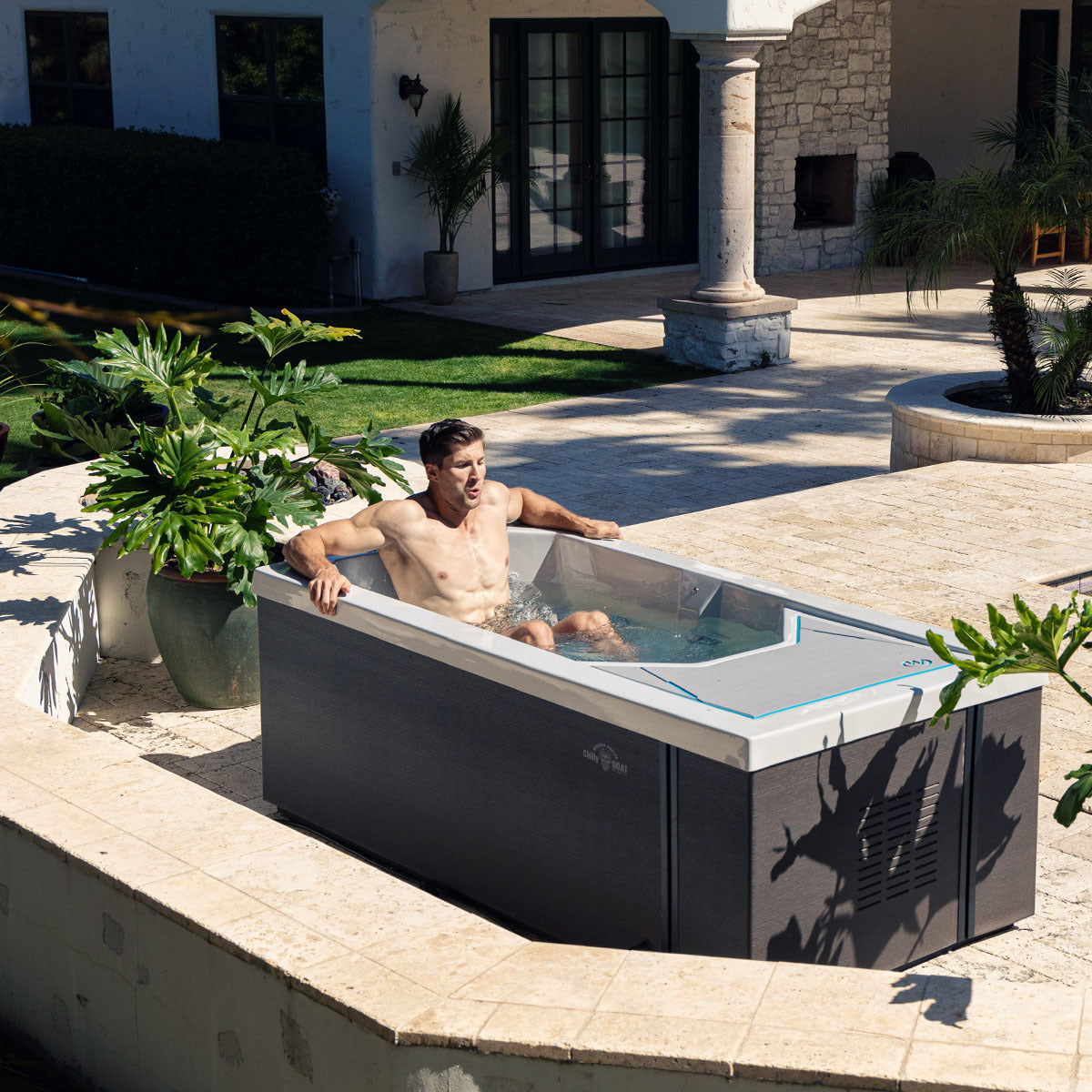
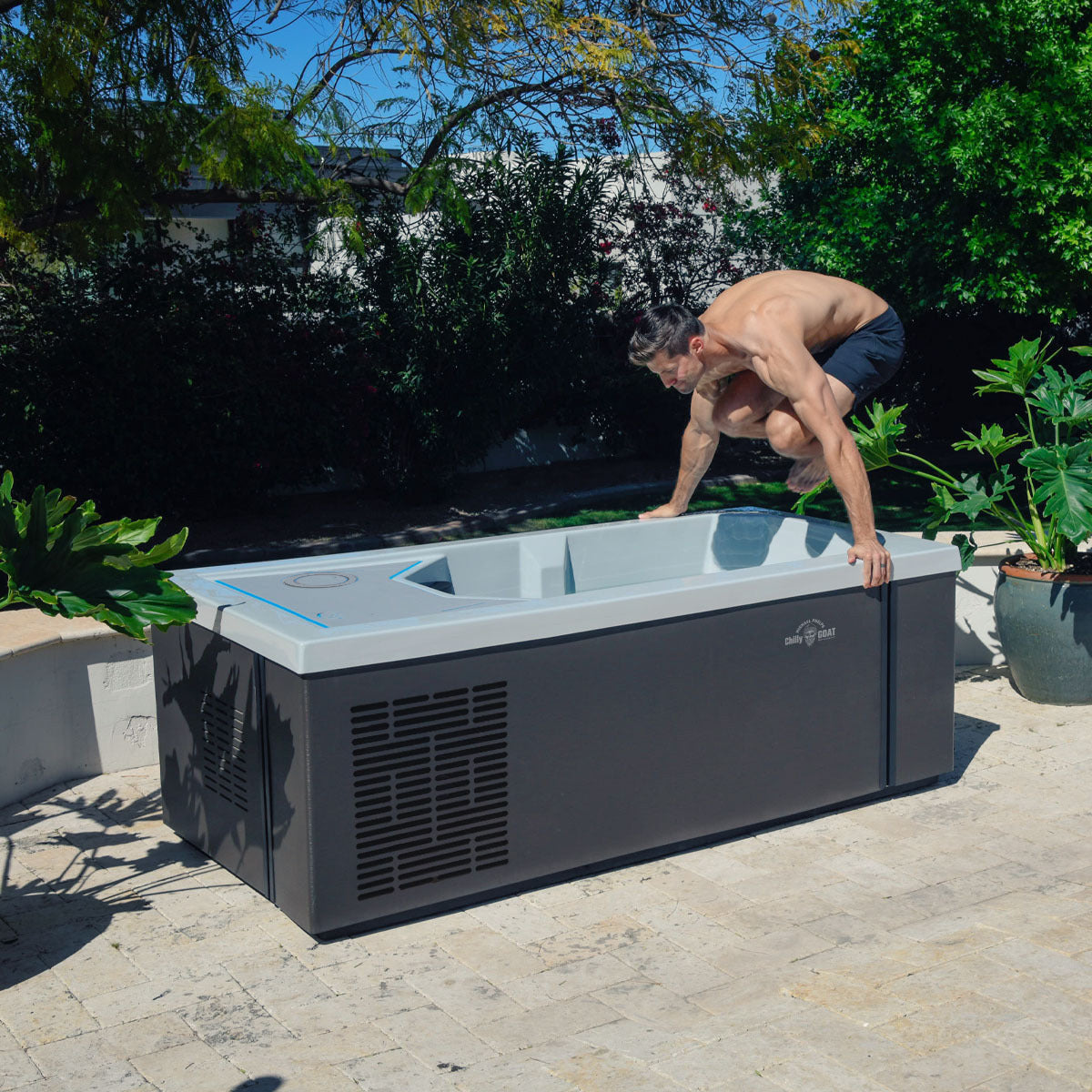
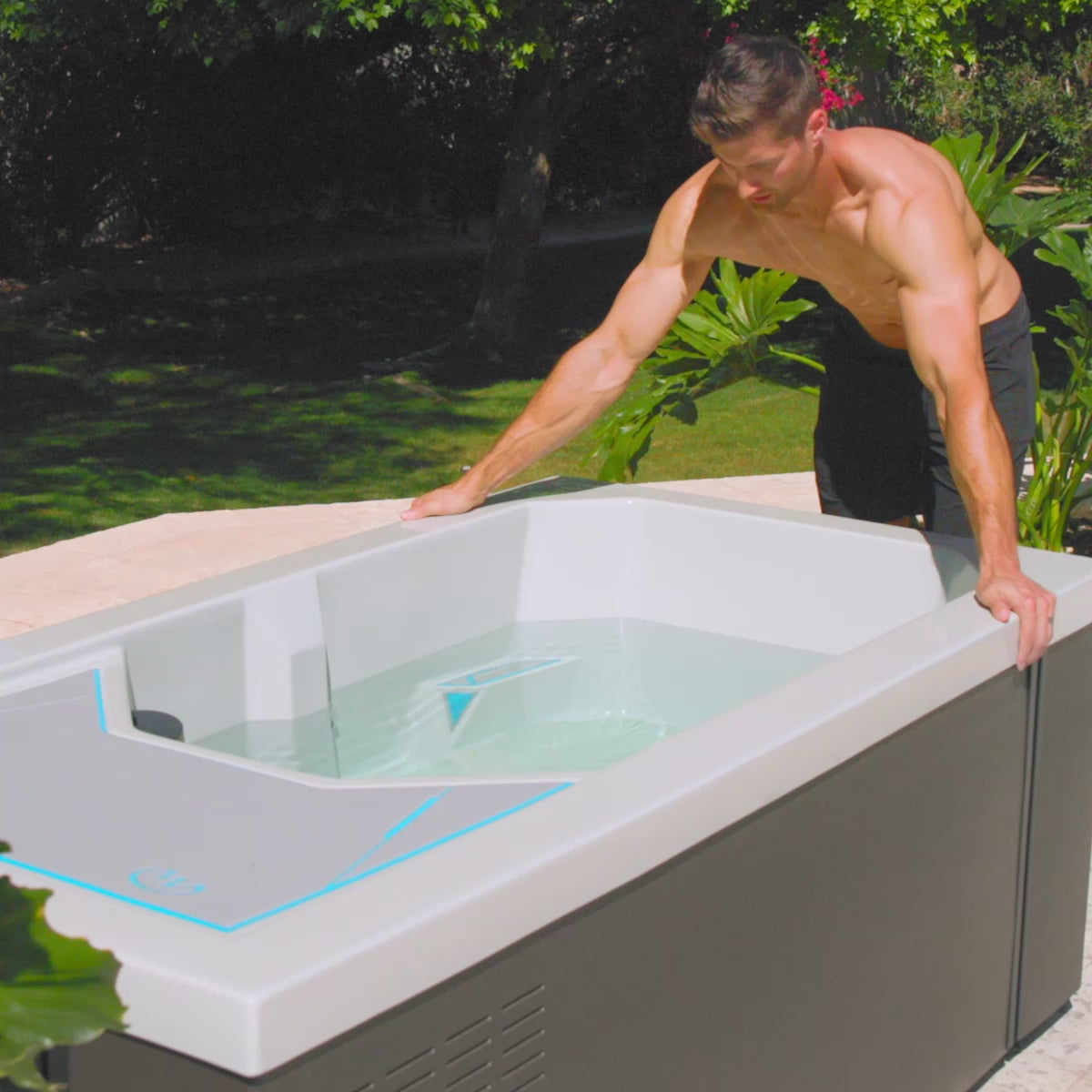
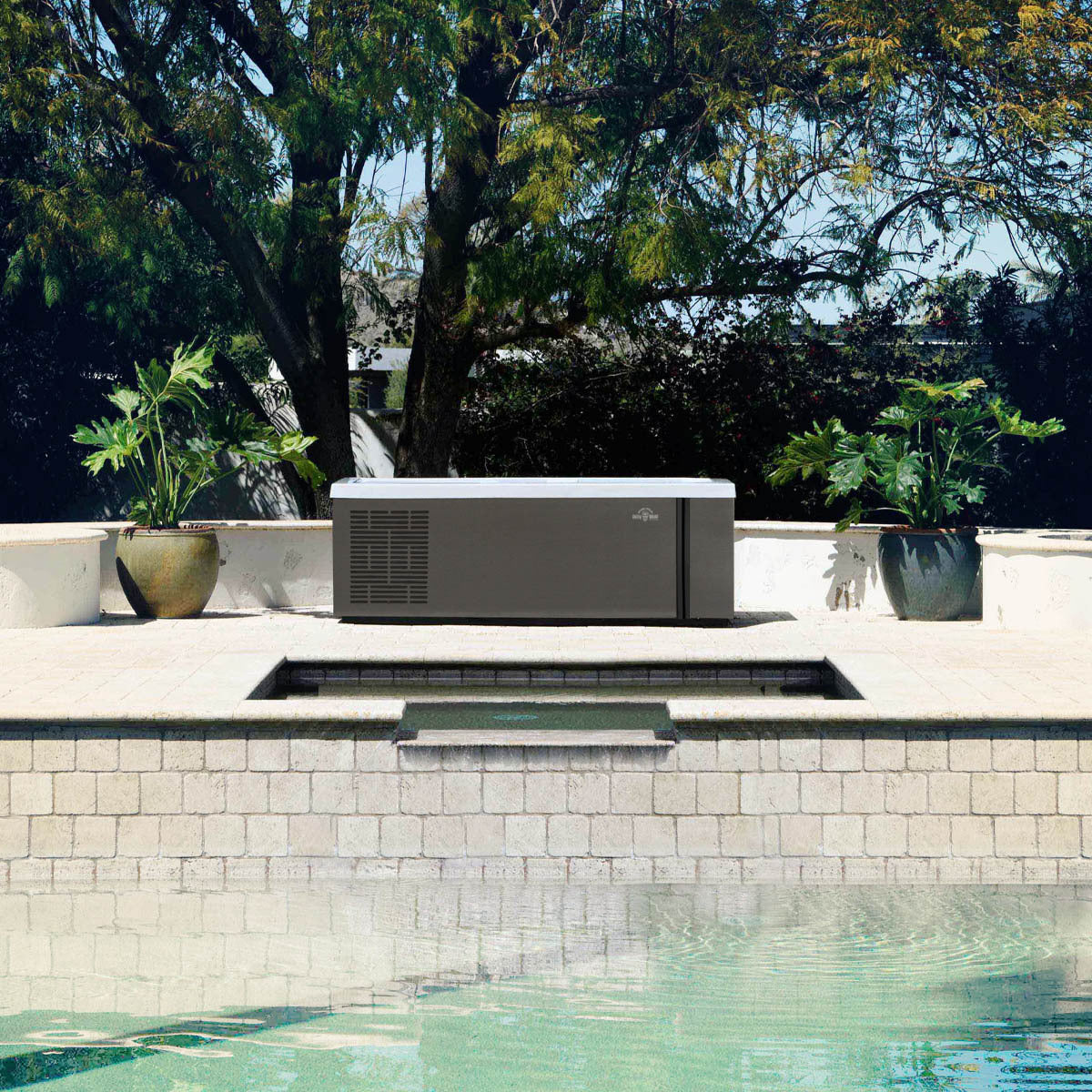
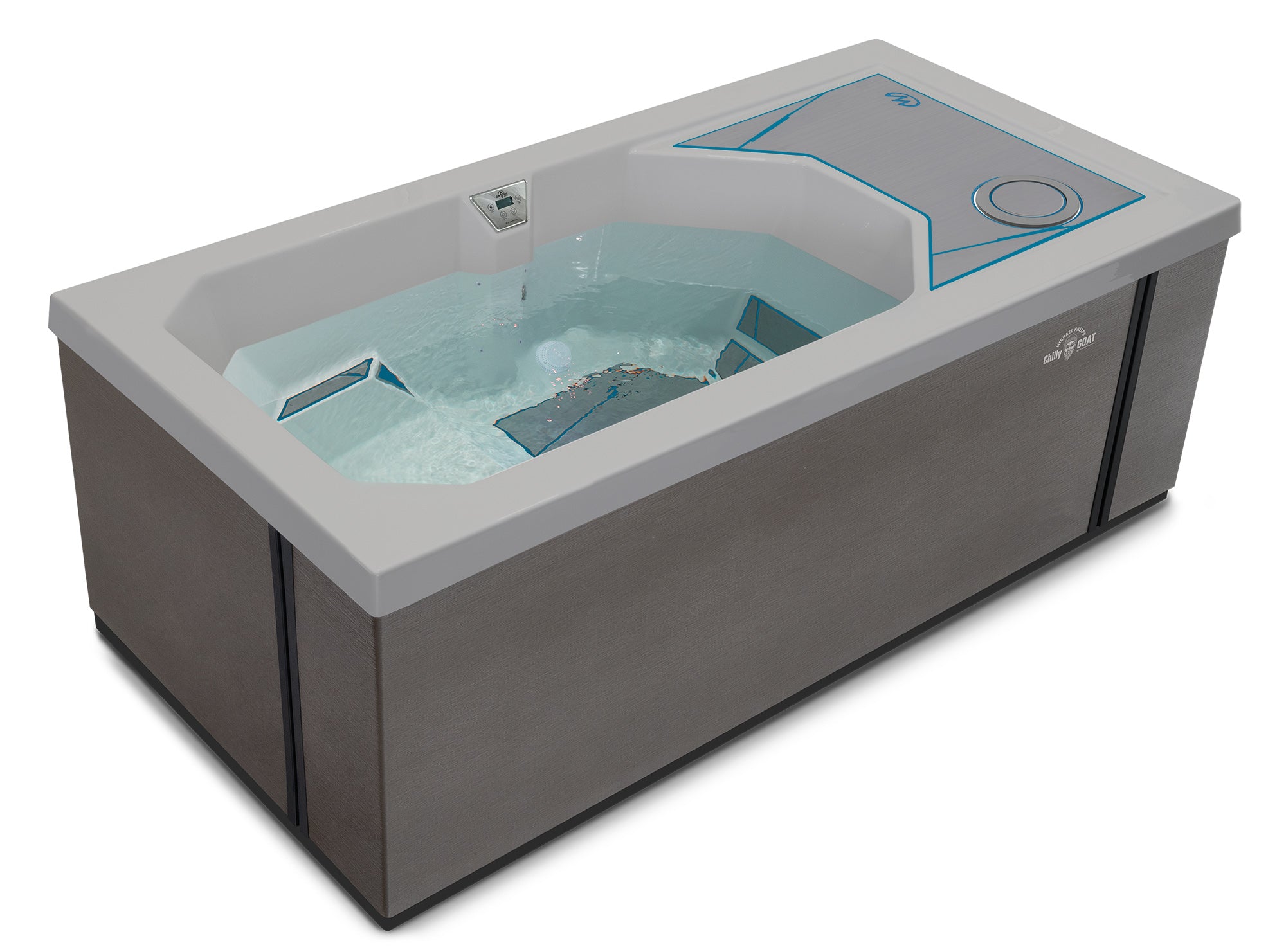
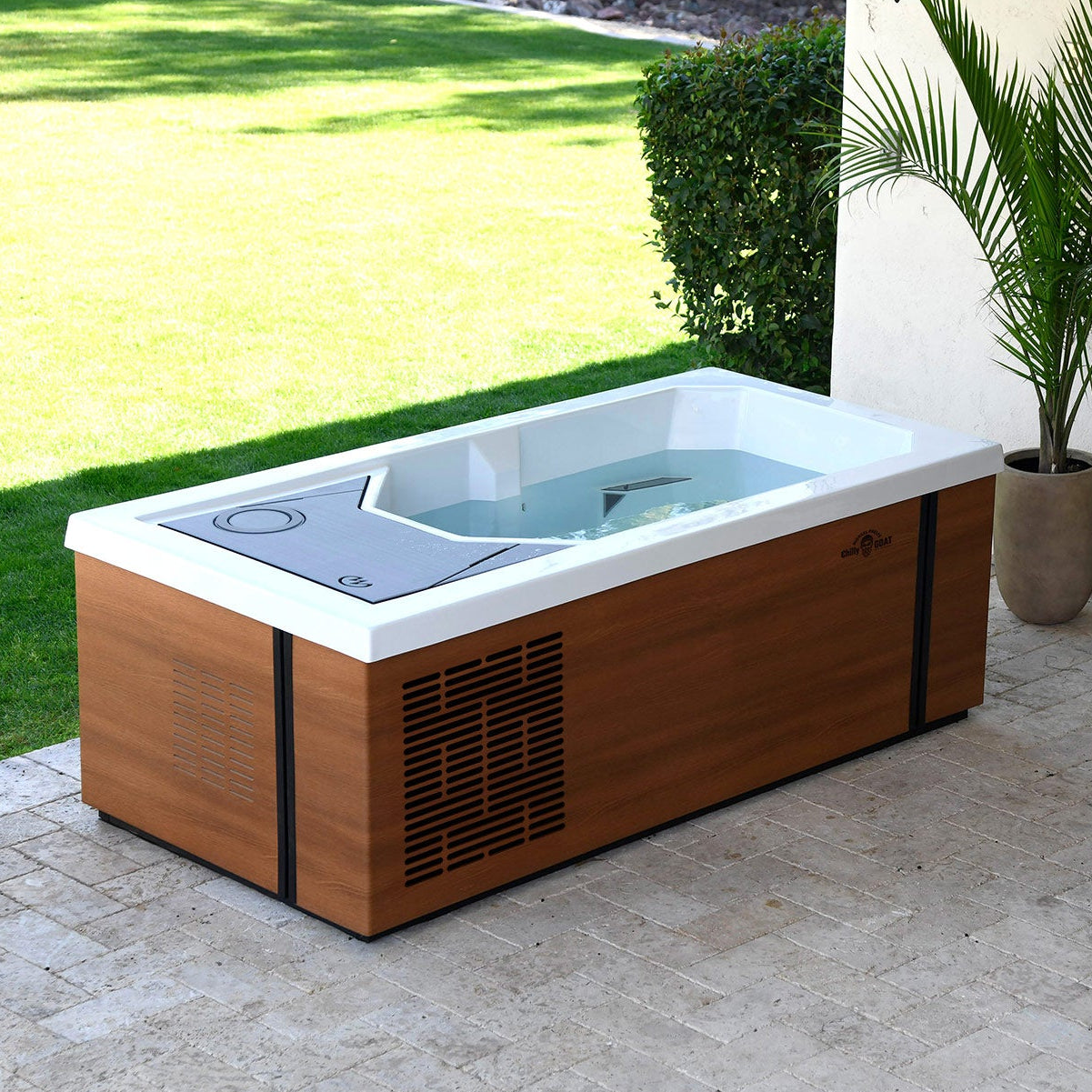
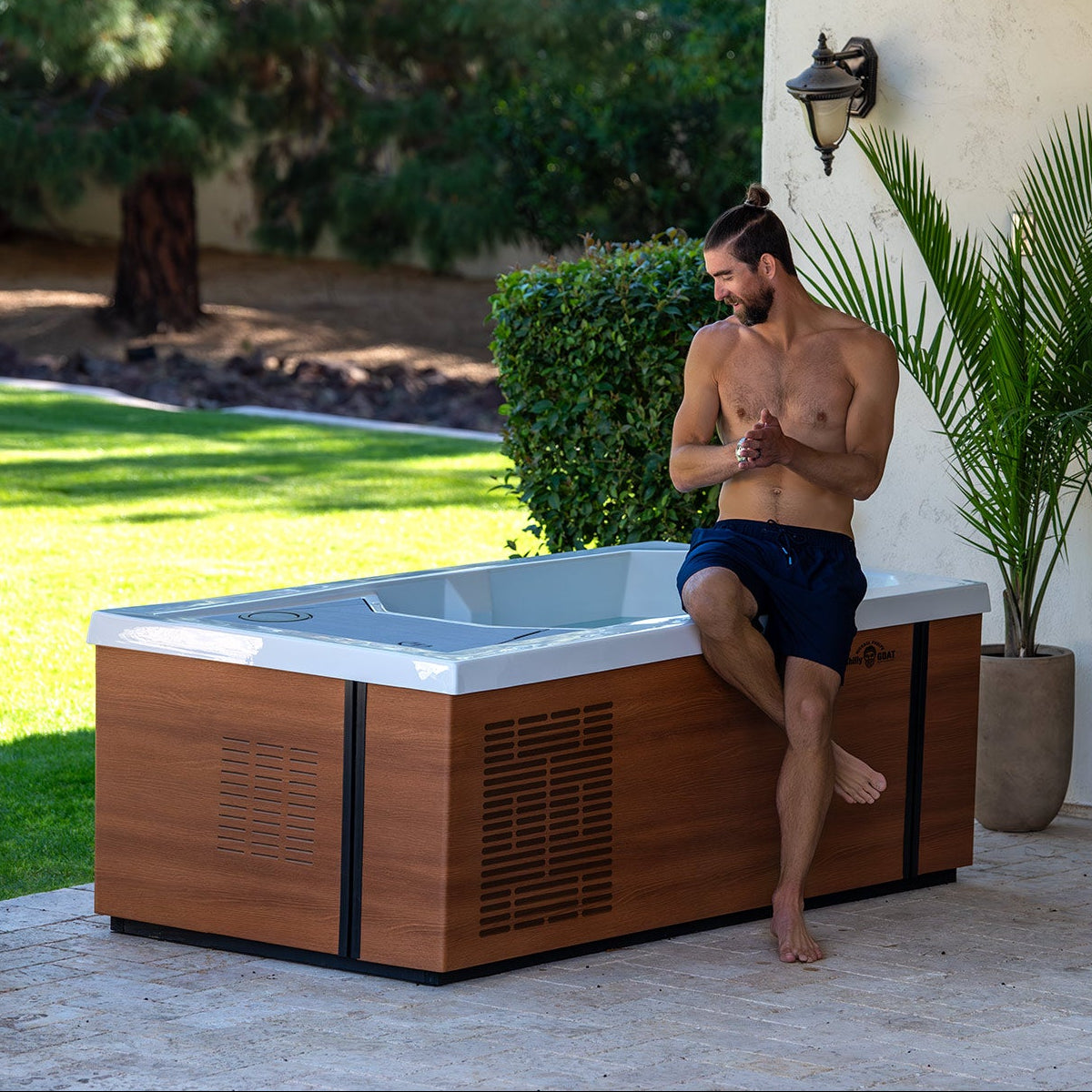
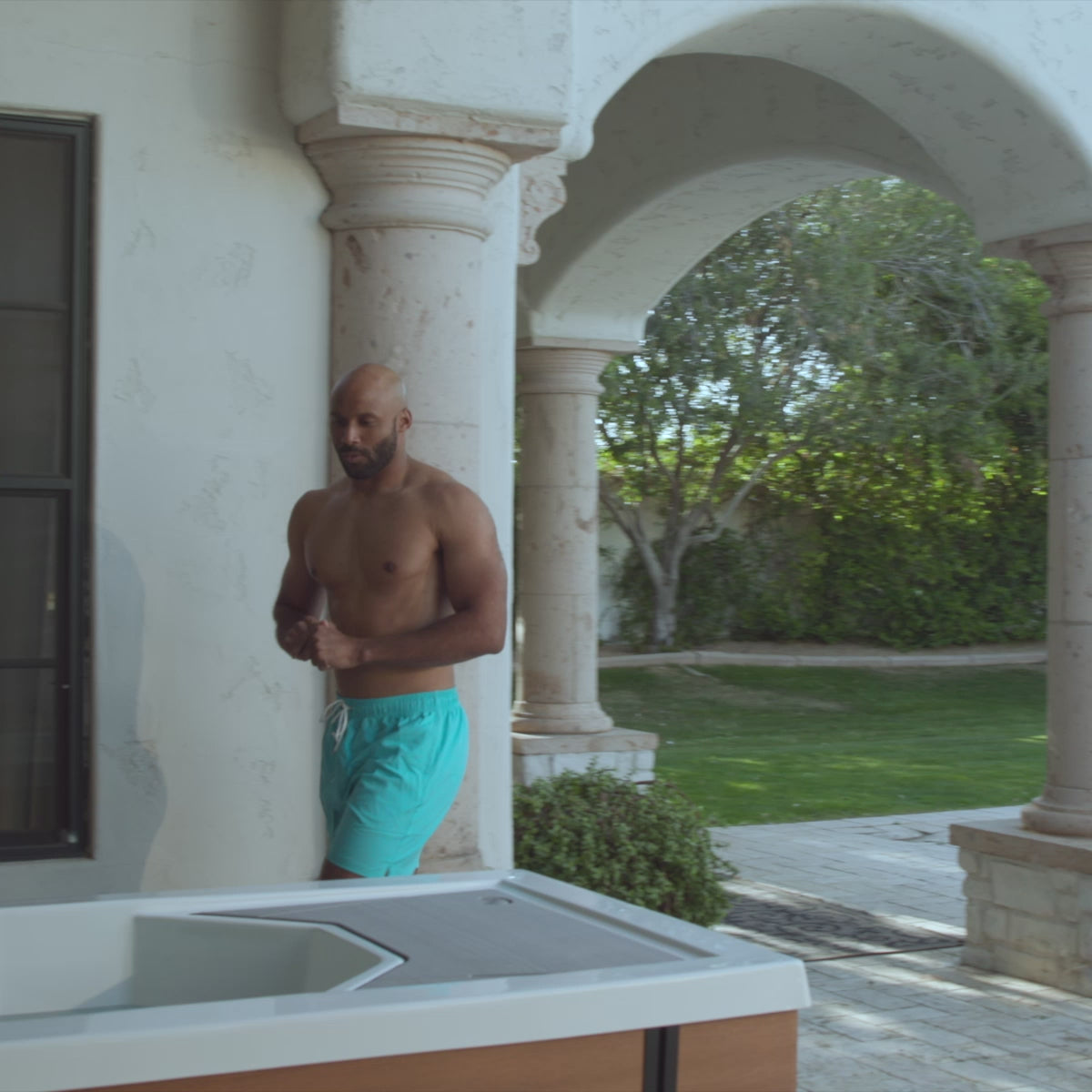
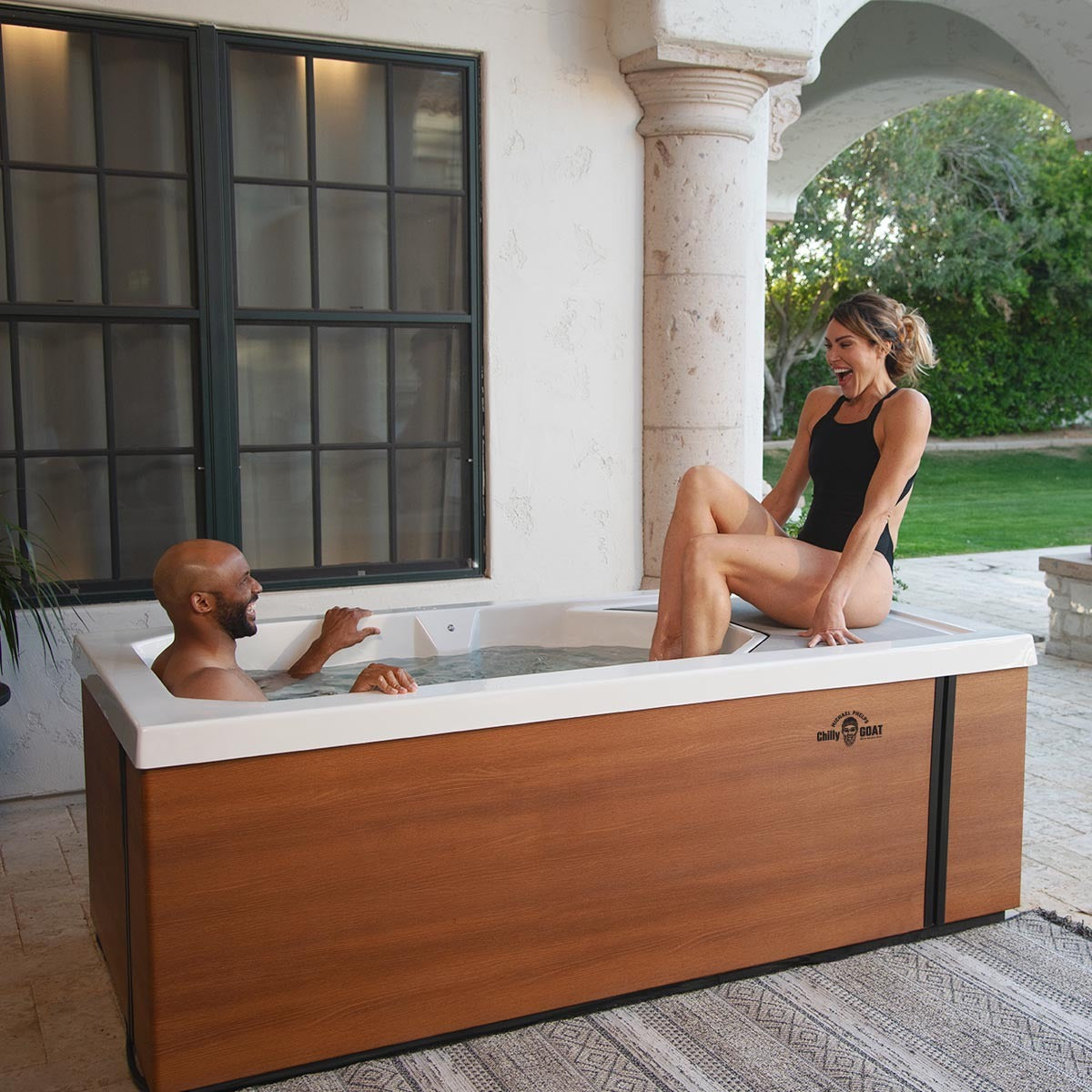
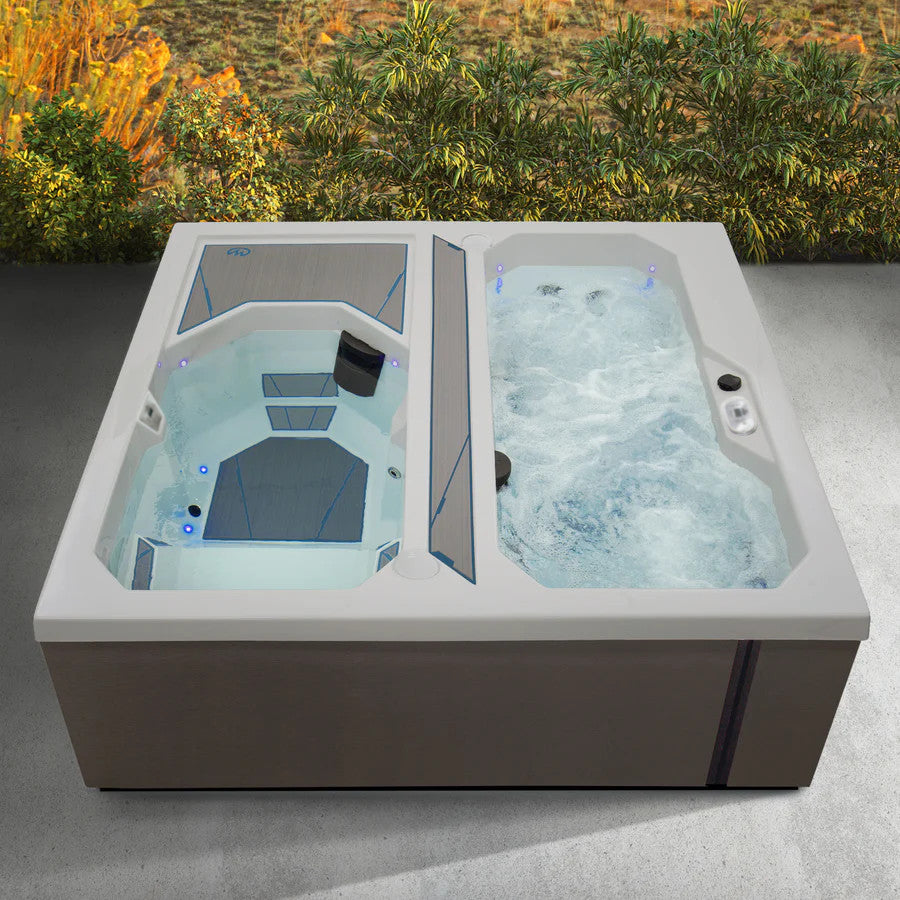
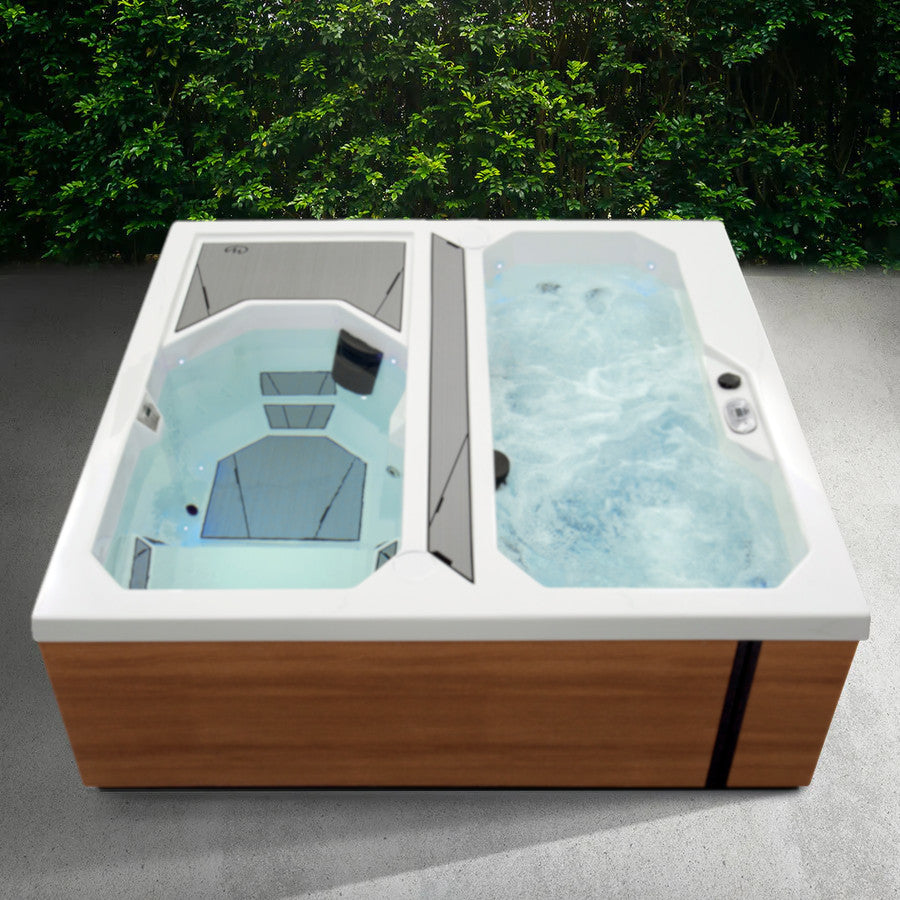
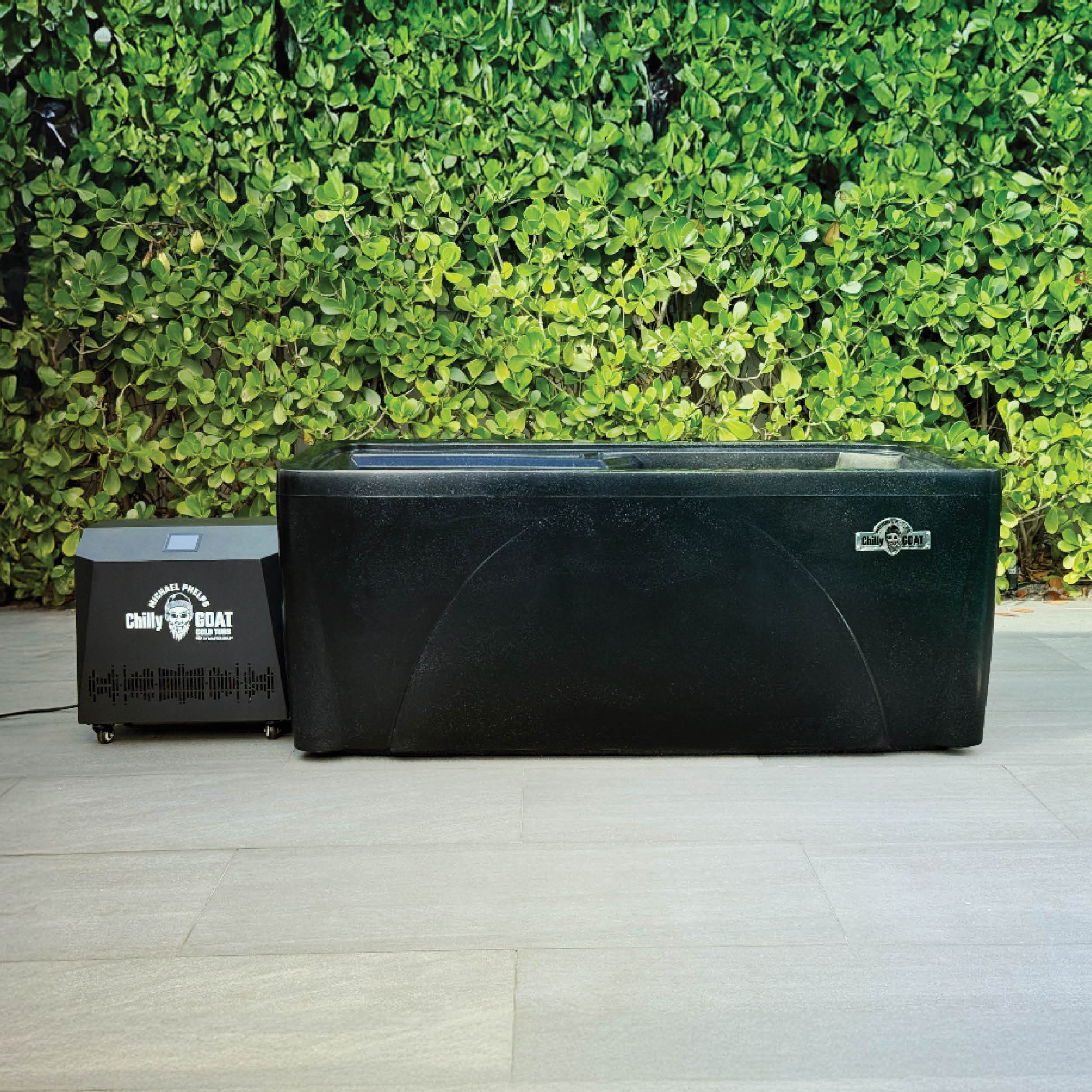
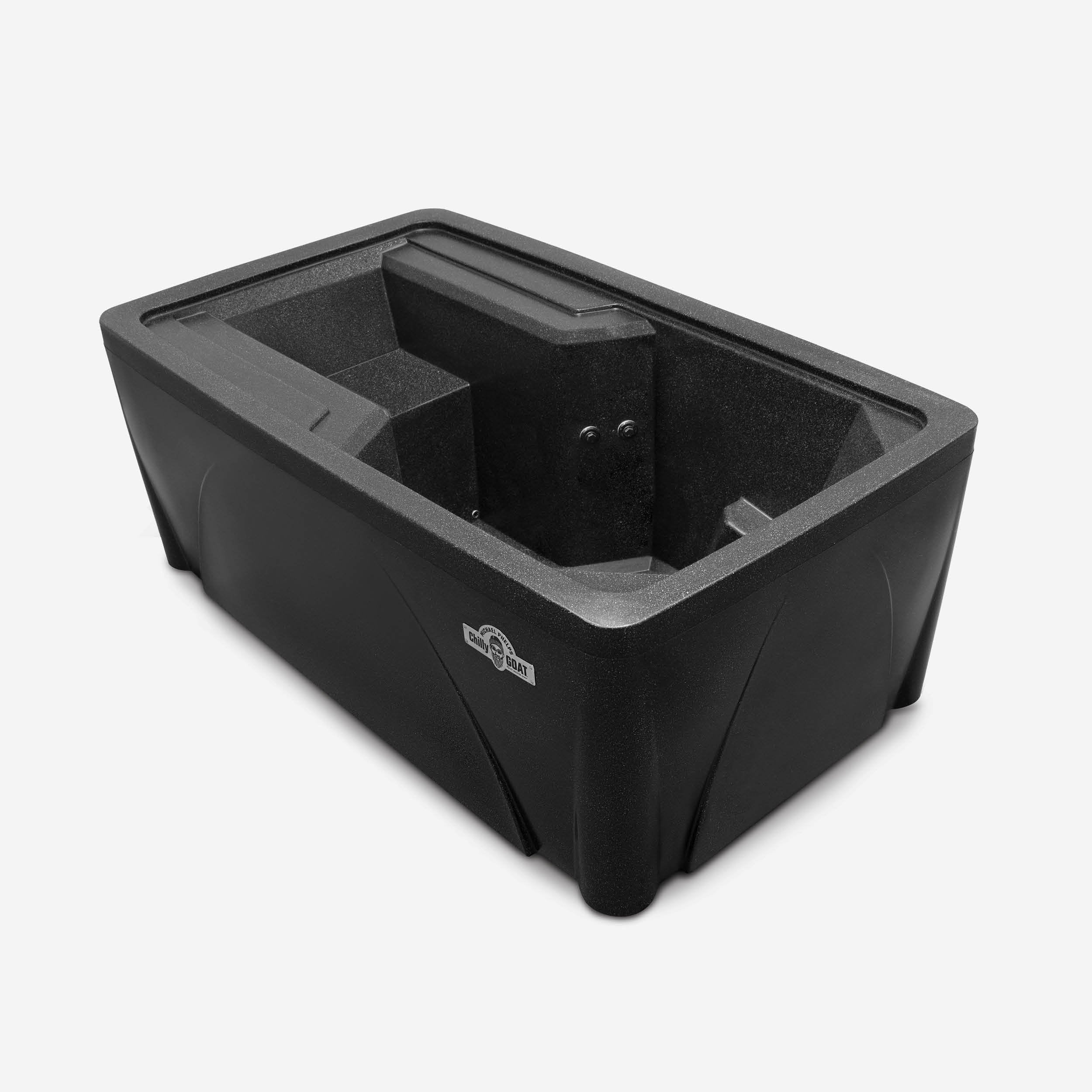
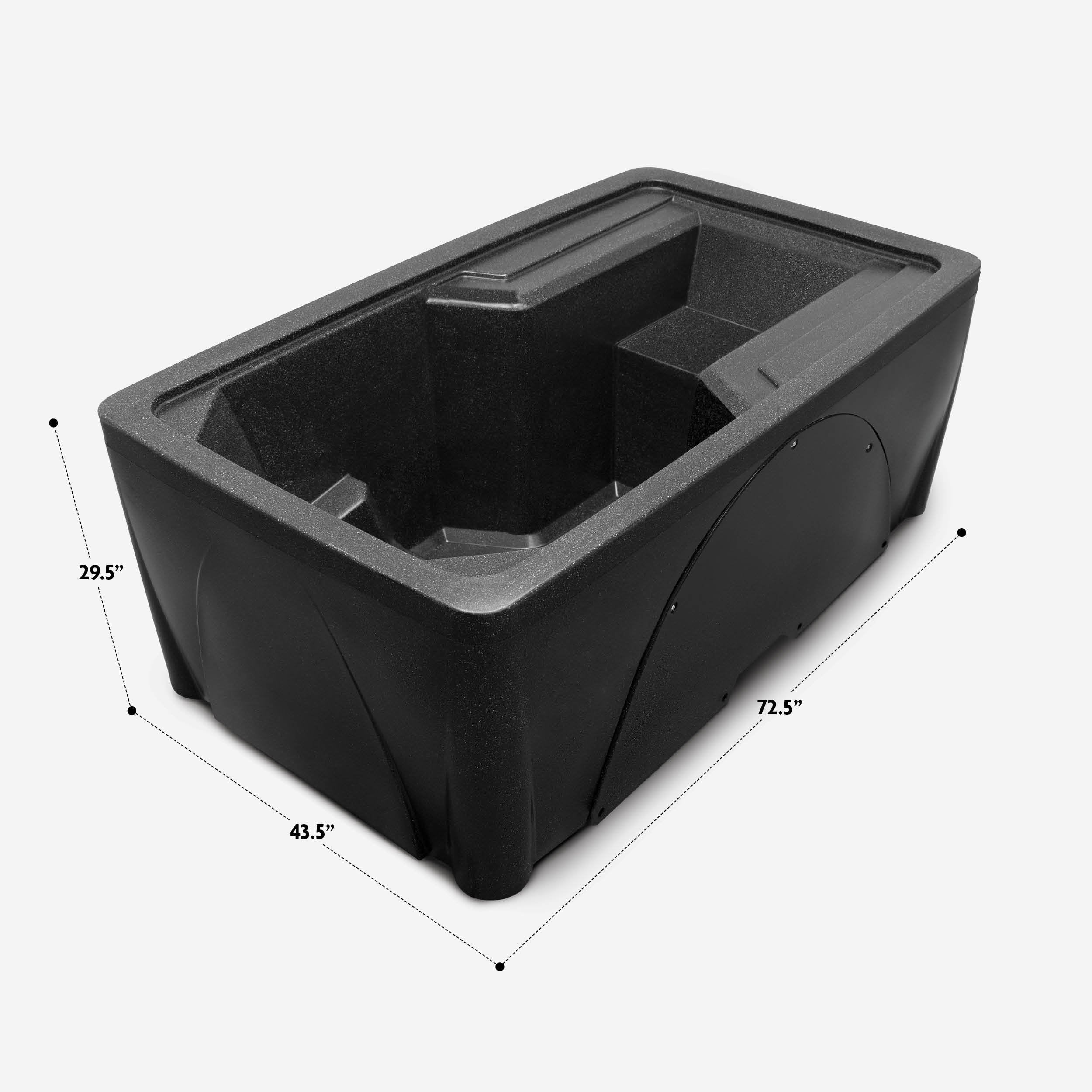
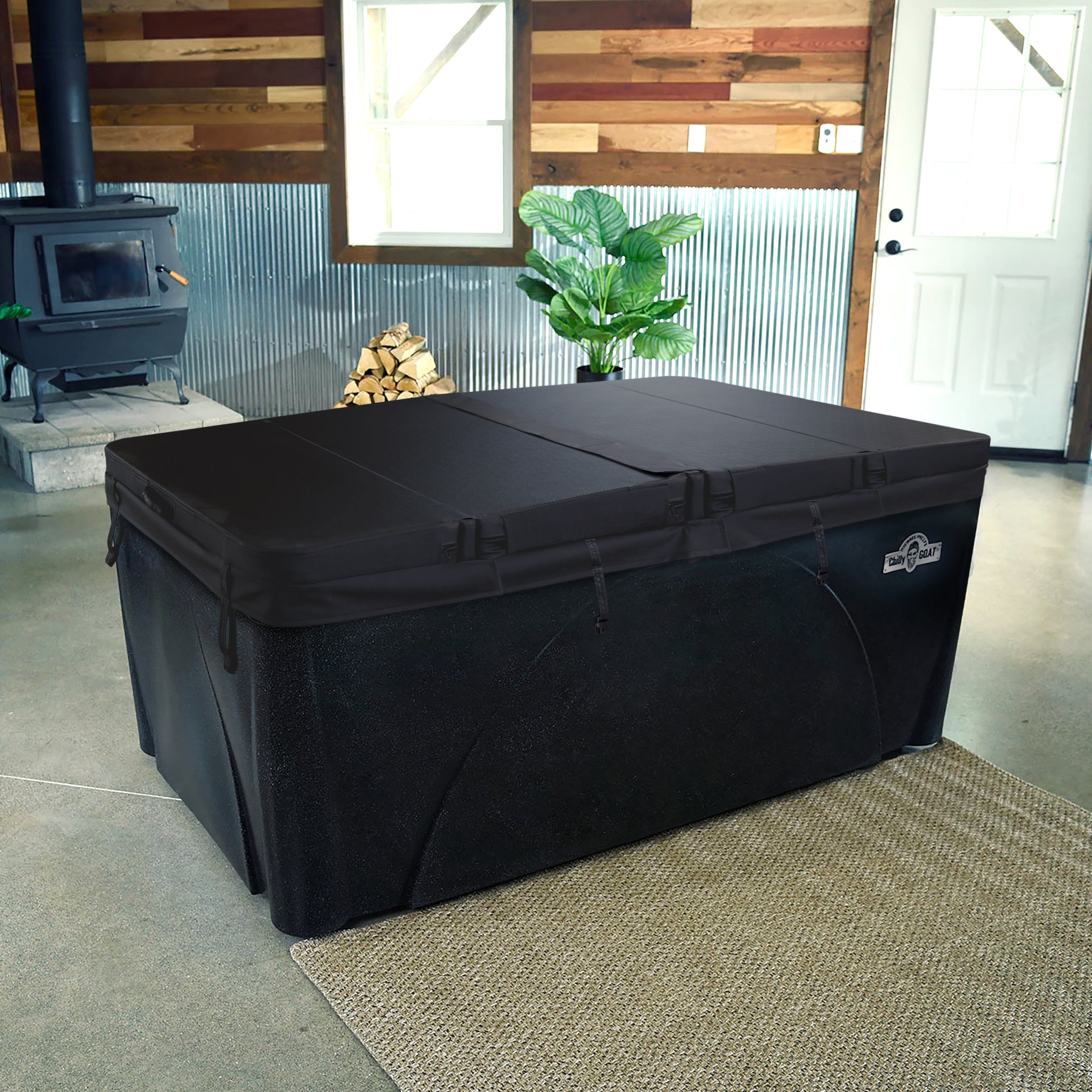
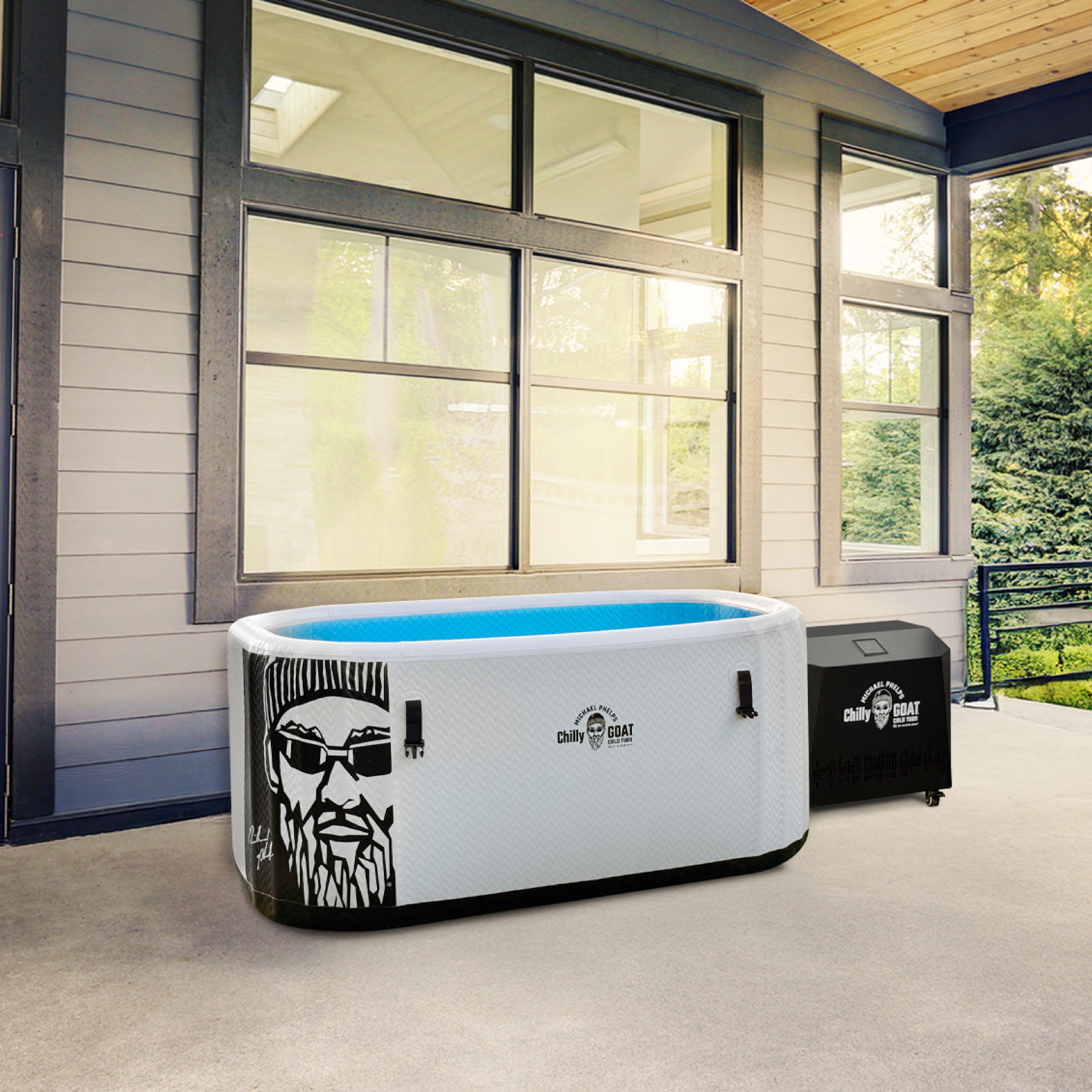
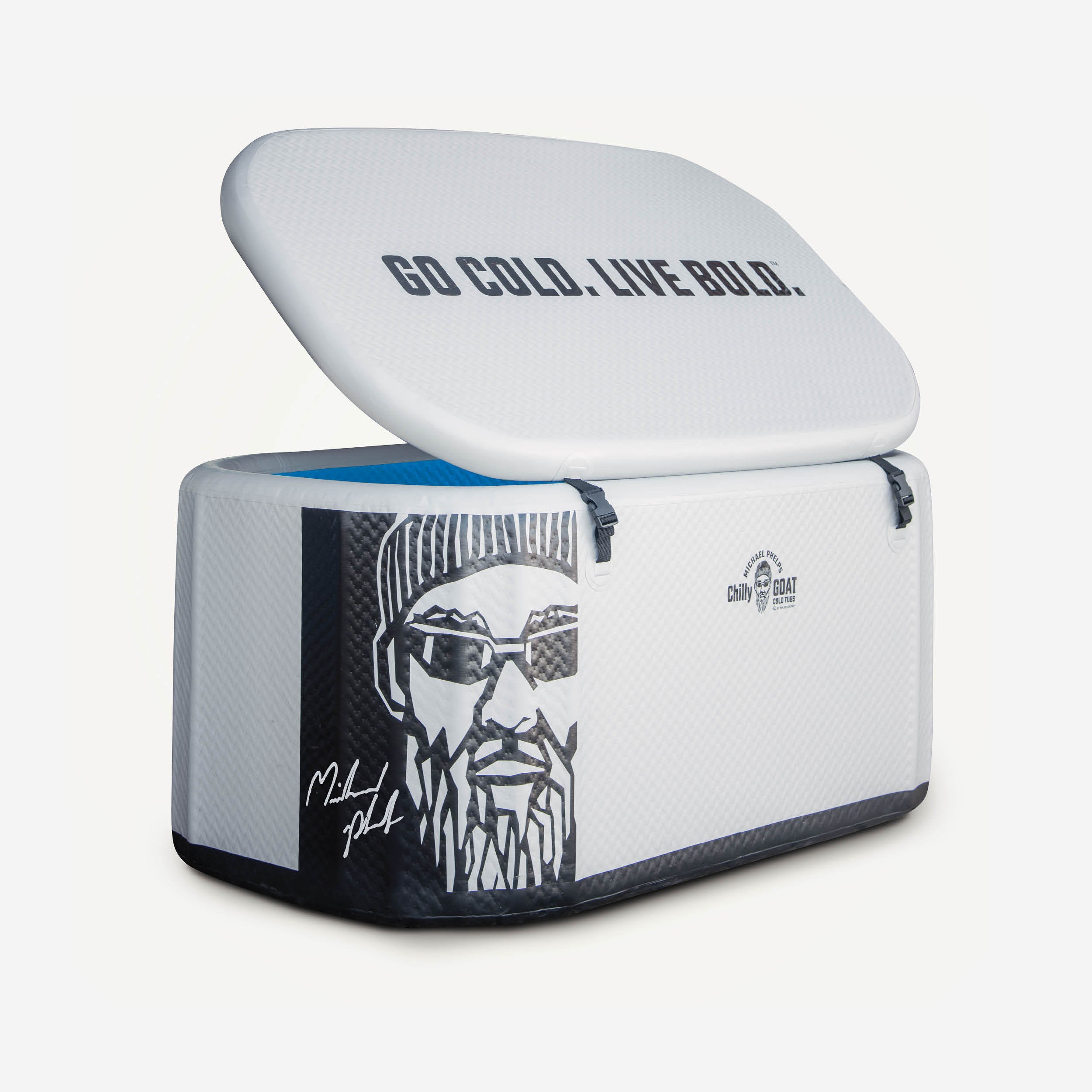
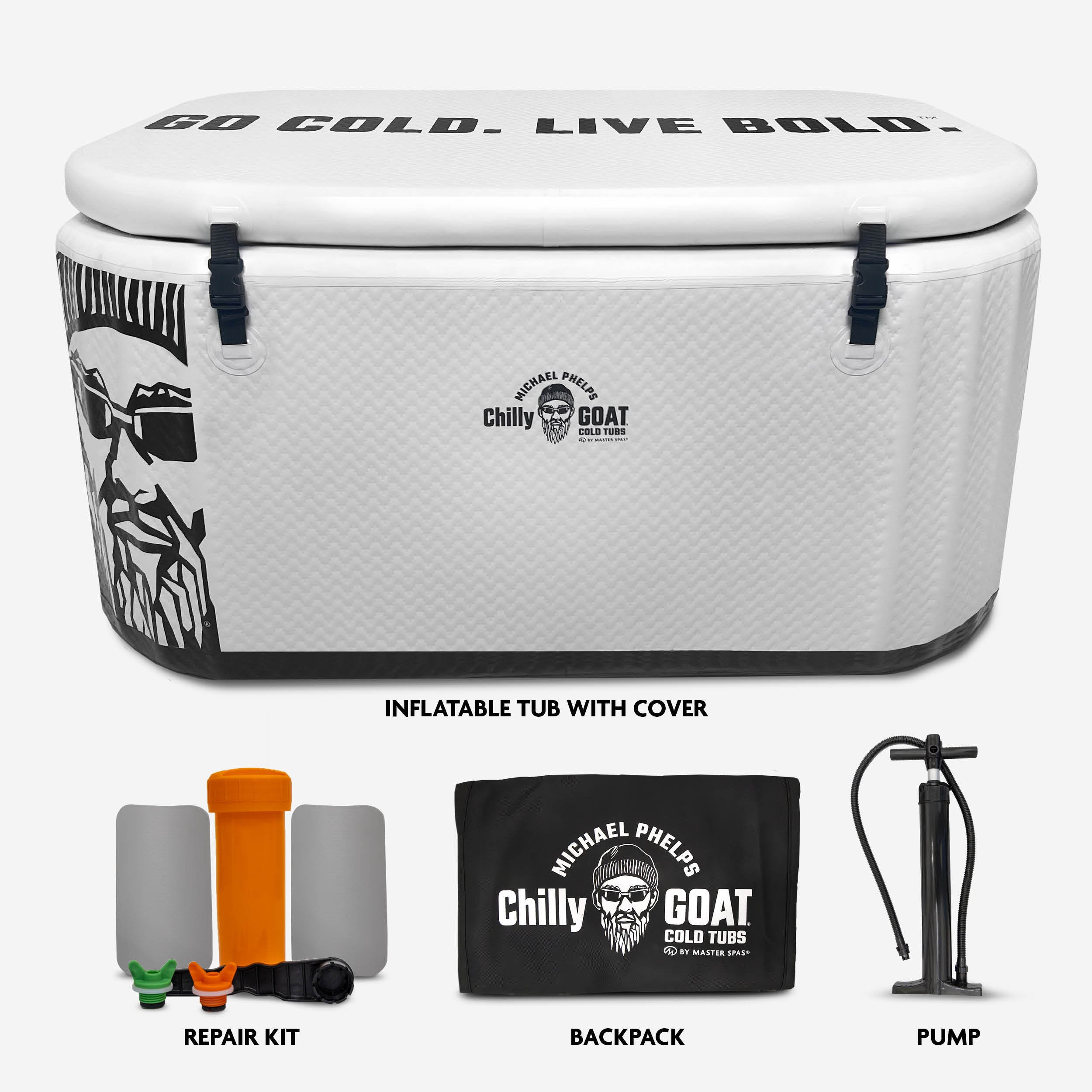
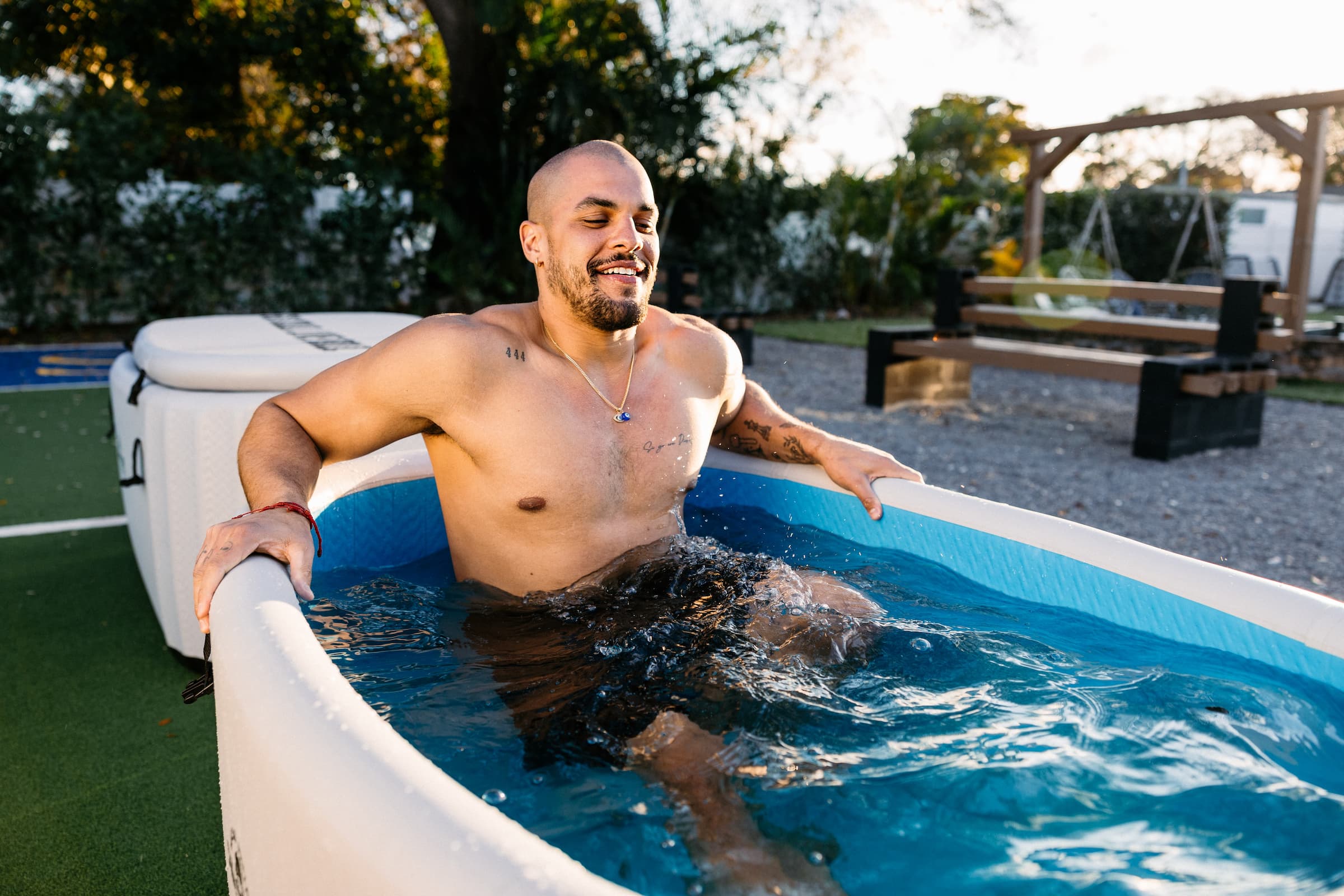
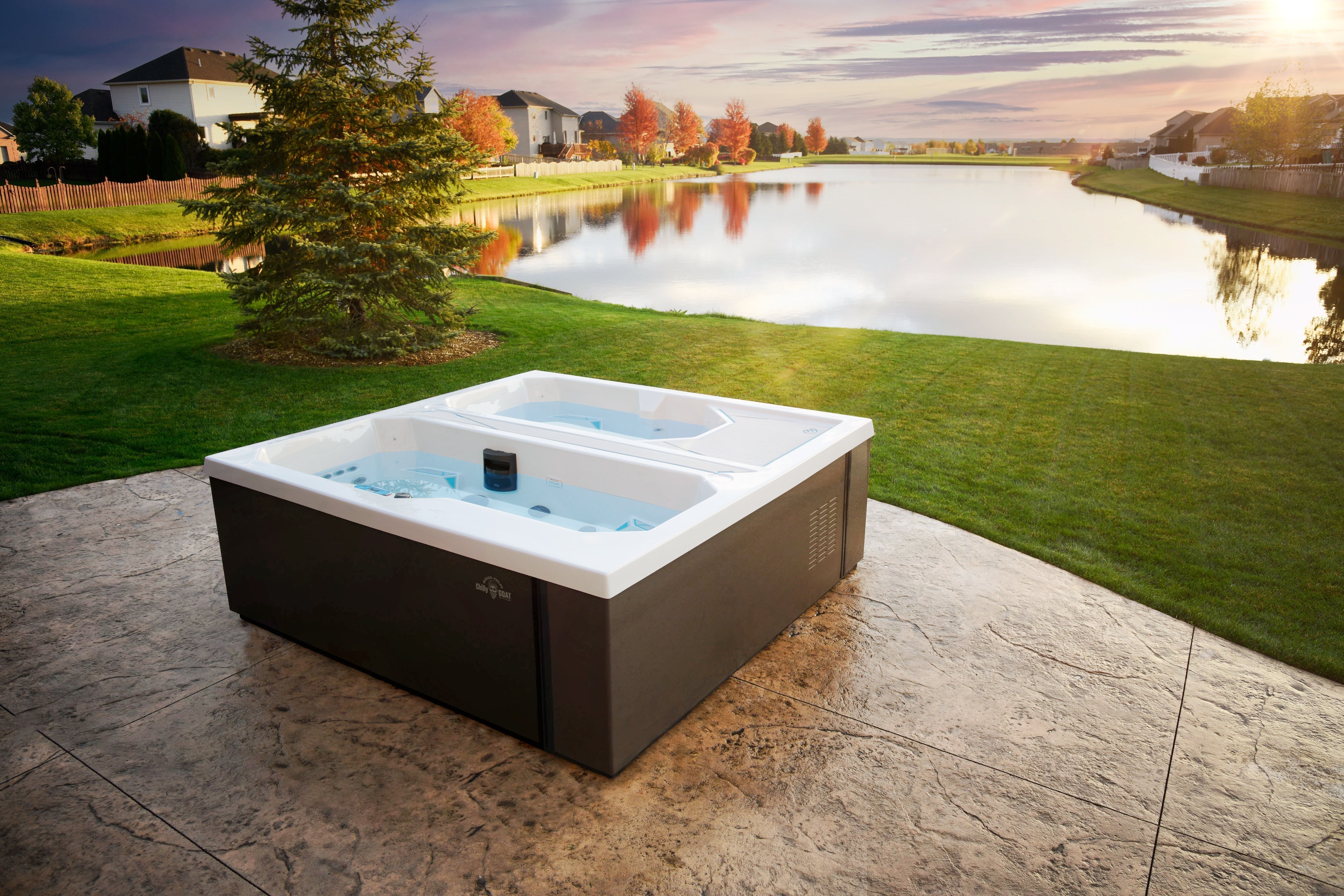
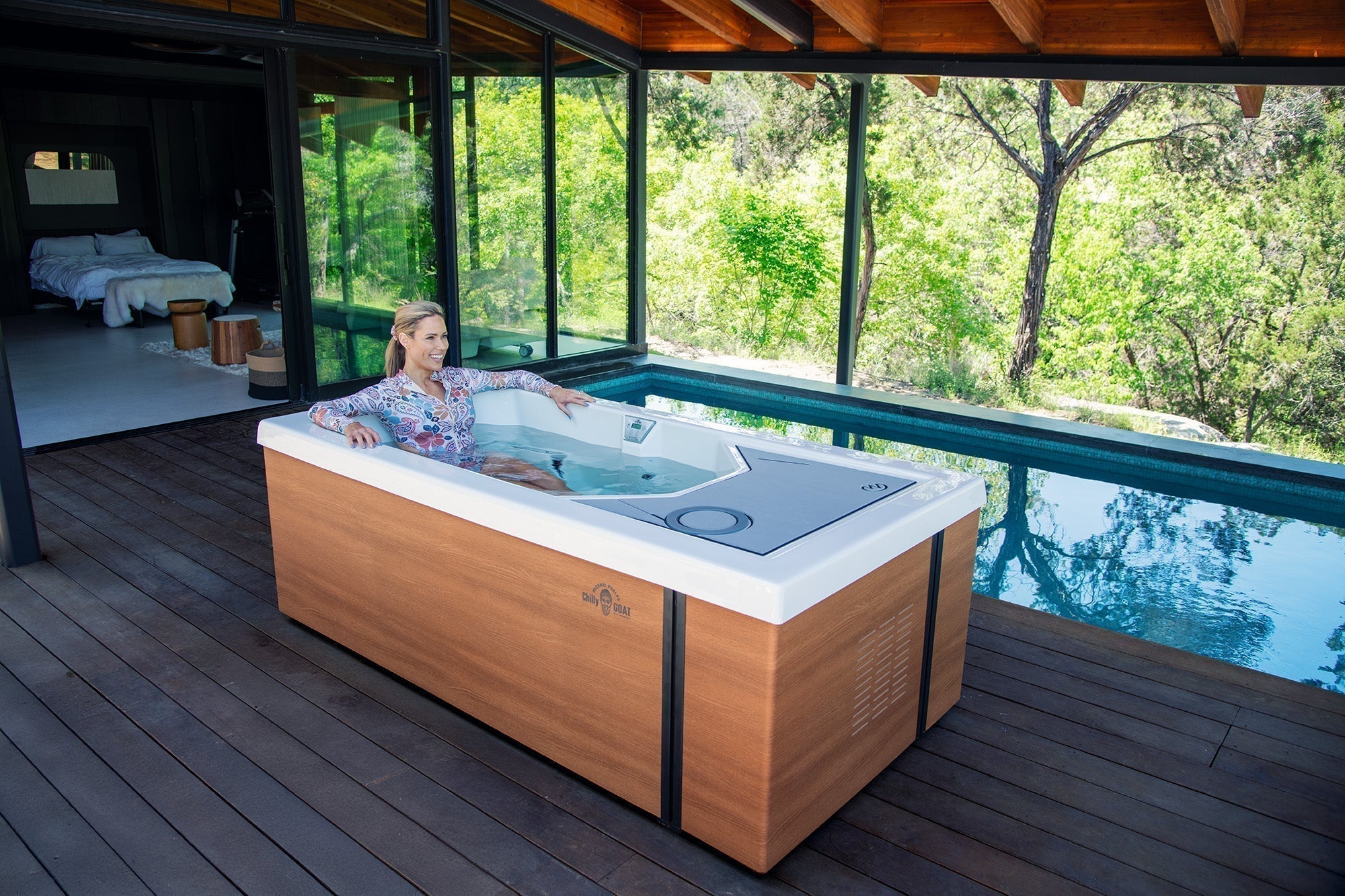
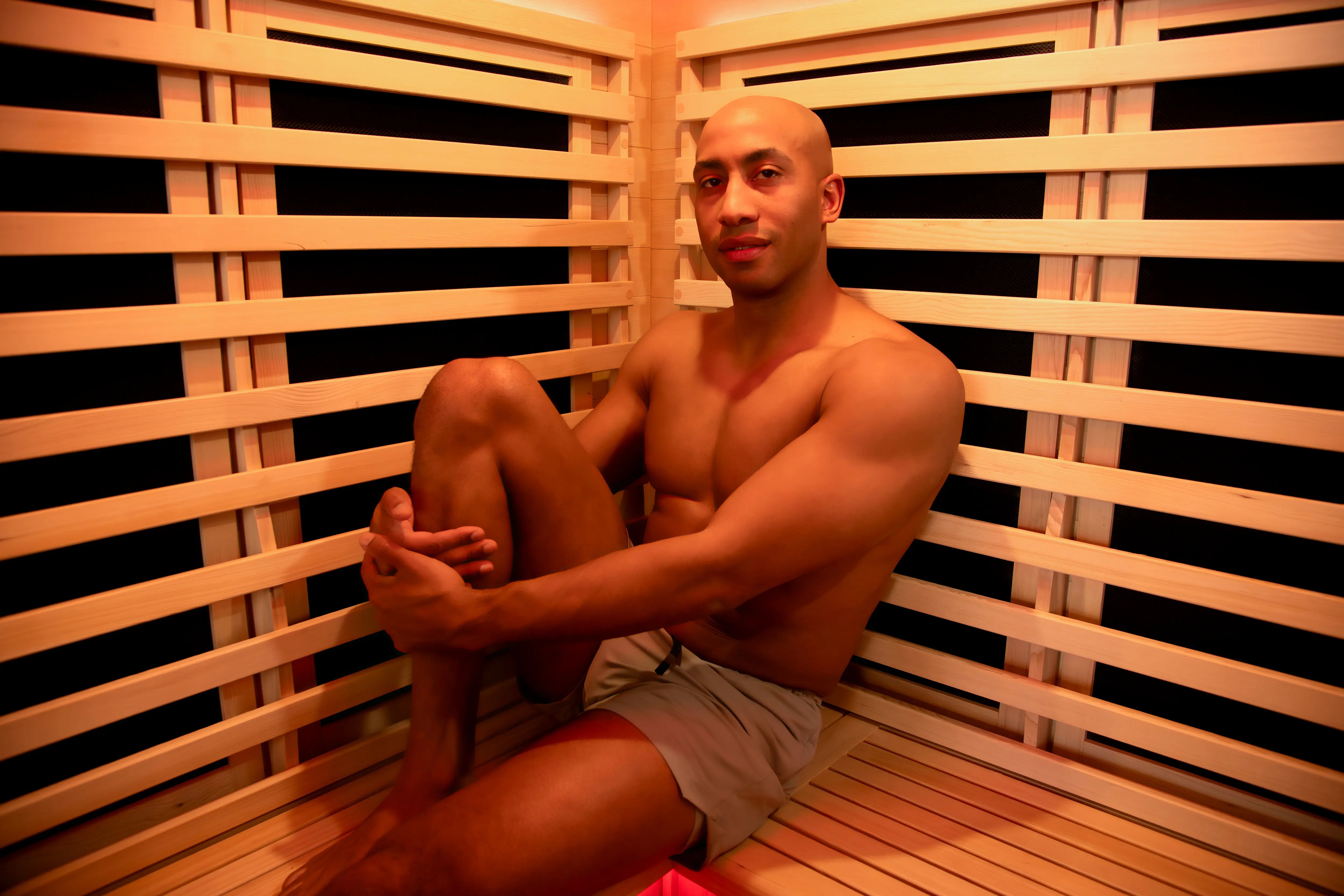
Lane Johnson’s secret to recovery: Inside his cold tub routine
Chilly GOAT tub review: Real owner feedback